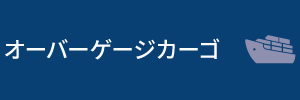HOME > ジャパトラブログ&ニュース
2019年11月20日
コラム/最適物流の科学㉝
最適物流の科学
弊社社長の菅が、2017年12月に『最適物流の科学―舞台は3億6106万平方km。
海を駆け巡る「眠らない仕事」』という書籍を出版しました。
そこで、本ブログでも、その書籍から抜粋した内容を
毎週1話ずつ、ご紹介していきたいと思います。
第三十三回となる今回は、「資本関係がないからこそ利く「自由」がある」というテーマでお話しいたします。
↓
↓
——————————————————————————————————–
「資本関係がないからこそ利く「自由」がある」
資本関係がないからこそ利く「自由」がある
特定企業と資本関係にある物流会社は、その親会社からさまざまなメリットを受けているわけですが、一般の荷主から見ると、その繫がりは必ずしもメリットとして働かないケースもあります。
たとえば船会社の子会社の場合、荷主に提供するスペースは、まず親会社の船からということになります。親会社の利益を優先する力がどうしても働き、顧客の希望スケジュールと合致していなくても、荷主に親会社の船を勧める場合もあるかもしれません。同様に親会社が倉庫会社であれば、その倉庫を利用するよう働きかけるでしょう。その倉庫が多少遠い場所にあったとしても、親会社の利益を優先する可能性もあります。
メーカー系物流業者では、外販比率すなわち親会社以外の荷主から業務を請け負う比率が五割を超える企業は一部にとどまっています。親会社に依存する体制によって安定的な収益を確保できているため、外部に対する価格競争力が弱い傾向が見られます。また親会社が扱っていない貨物への対応力が乏しいケースもあります。
商社系物流業者もこれと同様の傾向があります。また旧財閥系の場合は、ライバルにあたるグループ企業とは取引をしないため、ビジネス相手がおのずと制約されます。
一方で、どの会社とも資本関係を持たない物流業者の場合、バックに親会社を持つ企業に比べ、企業として全般的に見劣りすることは否めません。企業規模、経営の安定性、情報・ノウハウ、人材、知名度といった点で比較すると、どうしても旗色が悪くなります。とはいえ、これらの点については、第二章のフォワーダーと船会社との比較で見た通り、貨物の輸送を依頼する上で問題となる要素ではありません。
他の企業と資本関係にあることは、大手ブランドの知名度と引き換えに自由度を失うジレンマもあるのです。ニュートラルな立場であれば、船舶も倉庫も内陸輸送手段も、荷主の都合を最優先に考えた選択ができます。
特定企業の利益を考慮する必要はありません。企業グループの壁もないため、あらゆる企業と手を結ぶことができます。場合によっては、同業のライバル企業と取引するケースも可能です。
前節で、国際物流業者にとって船会社との幅広いネットワークは不可欠であると述べましたが、単にネットワークを保持しているだけでは意味がありません。
すべての船会社、さらには倉庫会社などの物流関連企業と、完全にフラットな立場で取引ができる姿勢こそが重要なのです。
結論として、荷主の立場で国際物流業者の選択を考えた場合、ニュートラルな立場にある事業者の方が「最適物流」というメリットを得られやすいといえるでしょう。
「“Freedom” because of no capital relationship」
A logistics company that is capital-tied to a specific company receives various benefits from its parent company. From a general shipper’s point of view, however, there are cases where the connection with its parent company, does not necessarily work as an advantage. For example, in the case of a subsidiary of a shipping company, the space to be provided to a shipper is from the ship of the parent company at first. The subsidiary might recommend their parent company’s ship even if the schedule does not match with the shipper’s request because of the unavoidable power to prioritize the interests of the parent company. Likewise, if the parent company is a warehouse company, the subsidiary will encourage a shipper to use the warehouse. Even if the warehouse is located somewhat far away, there is also the possibility of giving priority to the interests of the parent company.
The rate of external sales, that is, the sales rate that undertake from outside of the parent company is hardly to be over 50% at logistic companies of manufacturer field. Only a small portion of companies is in the realm where that ratio is over 50%. Because many subsidiaries have secured stable earnings by the system dependent on their parent company, price competitiveness to the outside tends to be weak. There are also cases that the responding ability to a cargo which the parent company does not handle is poor.
Logistic companies of trading field have similar trends. Also, in the case of the former financial combine group, former zaibatsu, business partners are naturally restricted because they do not deal with rival group companies.
On the other hand, in the case of the logistic company that do not have a capital relationship with any other companies, it doesn’t have much of a presence in comparison with the company that has a parent company. Compared in terms of company size, management stability, information / know-how, man-power and publicity, it is in an inferior position. Nonetheless, these points are not problem factors in requesting transportation of cargo, as I mentioned in the comparison of forwarders and shipping companies in chapter 2.
Having a capital relationship with other companies means there is also a dilemma, that is, the loss of freedom in exchange for the major brand identity. If the company is in a neutral position, they can make choices considering the convenience of the shipper as top priority when they choose a ship, warehouse and inland transportation.
There is no need to consider the interests of specific companies. Since there is no barrier of the corporate group, it is possible to work with any company. In some cases, it is also possible to deal with competing rival companies.
In the previous section, I mentioned that the wide network with shipping companies is necessary for international logistic companies. However, just having the network can be meaningless.
The important thing is the readiness to trade with all shipping companies as well as logistics-related companies such as warehouse companies in a completely neutral position.
In conclusion, when it comes to the choice of an international logistic operator from the shipper’s point of view, it can be said that the operators who are in a neutral position are more likely to give an advantage called “optimal logistics”.
——————————————————————————————————–
つづく。
次回は、「二〇一一年、日本に飲料水を緊急輸送せよ」というテーマでお話しいたします。
ご興味を持っていただけた方、続きを一気にご覧になられたい方は、ぜひアマゾンでお求めください♪
最適物流の科学――舞台は3億6106万平方km。海を駆け巡る「眠らない仕事」
https://www.amazon.co.jp/dp/4478084297/
北米向けコンテナ海上輸送(FCL)のエキスパート!詳しくはこちらから。
工作機械・大型貨物・重量物などのフラットラックコンテナ、オープントップコンテナ海上輸送ならおまかせ!詳しくはこちらから。
コンテナのサイズ表はこちらから。
投稿者
ジャパントラスト株式会社
- ブログ (449)
- コラム/最適物流の科学 (52)
- ニュース (151)
- 2025年4月 (4)
- 2025年3月 (4)
- 2025年2月 (4)
- 2025年1月 (4)
- 2024年12月 (3)
- 2024年11月 (2)
- 2024年10月 (2)
- 2024年9月 (4)
- 2024年8月 (5)
- 2024年7月 (5)
- 2024年6月 (5)
- 2024年5月 (4)
- 2024年4月 (5)
- 2024年3月 (6)
- 2024年2月 (3)
- 2024年1月 (3)
- 2023年12月 (5)
- 2023年11月 (4)
- 2023年10月 (3)
- 2023年9月 (4)
- 2023年8月 (4)
- 2023年7月 (3)
- 2023年6月 (3)
- 2023年5月 (4)
- 2023年4月 (4)
- 2023年3月 (4)
- 2023年2月 (4)
- 2023年1月 (3)
- 2022年12月 (3)
- 2022年11月 (3)
- 2022年10月 (4)
- 2022年9月 (3)
- 2022年8月 (4)
- 2022年7月 (9)
- 2022年6月 (6)
- 2022年5月 (8)
- 2022年4月 (6)
- 2022年3月 (7)
- 2022年2月 (5)
- 2022年1月 (6)
- 2021年12月 (3)
- 2021年11月 (8)
- 2021年10月 (5)
- 2021年9月 (4)
- 2021年8月 (7)
- 2021年7月 (4)
- 2021年6月 (4)
- 2021年5月 (6)
- 2021年4月 (3)
- 2021年3月 (5)
- 2021年2月 (2)
- 2021年1月 (6)
- 2020年12月 (4)
- 2020年11月 (3)
- 2020年10月 (3)
- 2020年9月 (6)
- 2020年8月 (1)
- 2020年7月 (2)
- 2020年6月 (3)
- 2020年5月 (4)
- 2020年4月 (6)
- 2020年3月 (5)
- 2020年2月 (6)
- 2020年1月 (5)
- 2019年12月 (5)
- 2019年11月 (4)
- 2019年10月 (7)
- 2019年9月 (6)
- 2019年8月 (3)
- 2019年7月 (3)
- 2019年6月 (2)
- 2019年5月 (6)
- 2019年4月 (7)
- 2019年3月 (5)
- 2019年2月 (7)
- 2019年1月 (3)
- 2018年12月 (2)
- 2018年11月 (2)
- 2018年10月 (1)
- 2018年9月 (1)
- 2018年8月 (3)
- 2018年7月 (2)
- 2018年6月 (4)
- 2018年5月 (1)
- 2018年4月 (3)
- 2018年3月 (3)
- 2018年2月 (6)
- 2018年1月 (1)
- 2017年12月 (1)
- 2017年11月 (6)
- 2017年10月 (2)
- 2017年9月 (4)
- 2017年8月 (4)
- 2017年7月 (1)
- 2017年6月 (5)
- 2017年5月 (3)
- 2017年4月 (5)
- 2017年3月 (1)
- 2017年2月 (3)
- 2017年1月 (7)
- 2016年12月 (4)
- 2016年11月 (4)
- 2016年10月 (7)
- 2016年9月 (7)
- 2016年8月 (7)
- 2016年7月 (7)
- 2016年6月 (6)
- 2016年5月 (6)
- 2016年4月 (2)
- 2016年3月 (6)
- 2016年2月 (11)
- 2016年1月 (6)
- 2015年12月 (5)
- 2015年11月 (5)
- 2015年10月 (5)
- 2015年9月 (8)
- 2015年8月 (8)
- 2015年7月 (8)
- 2015年6月 (9)
- 2015年5月 (3)
- 2015年4月 (3)
- 2015年3月 (8)
- 2015年2月 (6)
- 2015年1月 (2)
- 2014年12月 (5)
- 2014年11月 (5)
- 2014年10月 (6)
- 2014年9月 (5)
- 2014年8月 (7)
- 2014年7月 (4)
- 2014年6月 (7)
- 2014年5月 (3)
- 2014年4月 (6)
- 2014年3月 (3)
- 2014年2月 (6)
- 2014年1月 (3)
- 2013年12月 (2)
- 2013年11月 (6)
- 2013年10月 (3)
- 2013年9月 (5)
- 2013年8月 (5)
- 2013年7月 (4)
- 2013年6月 (2)


